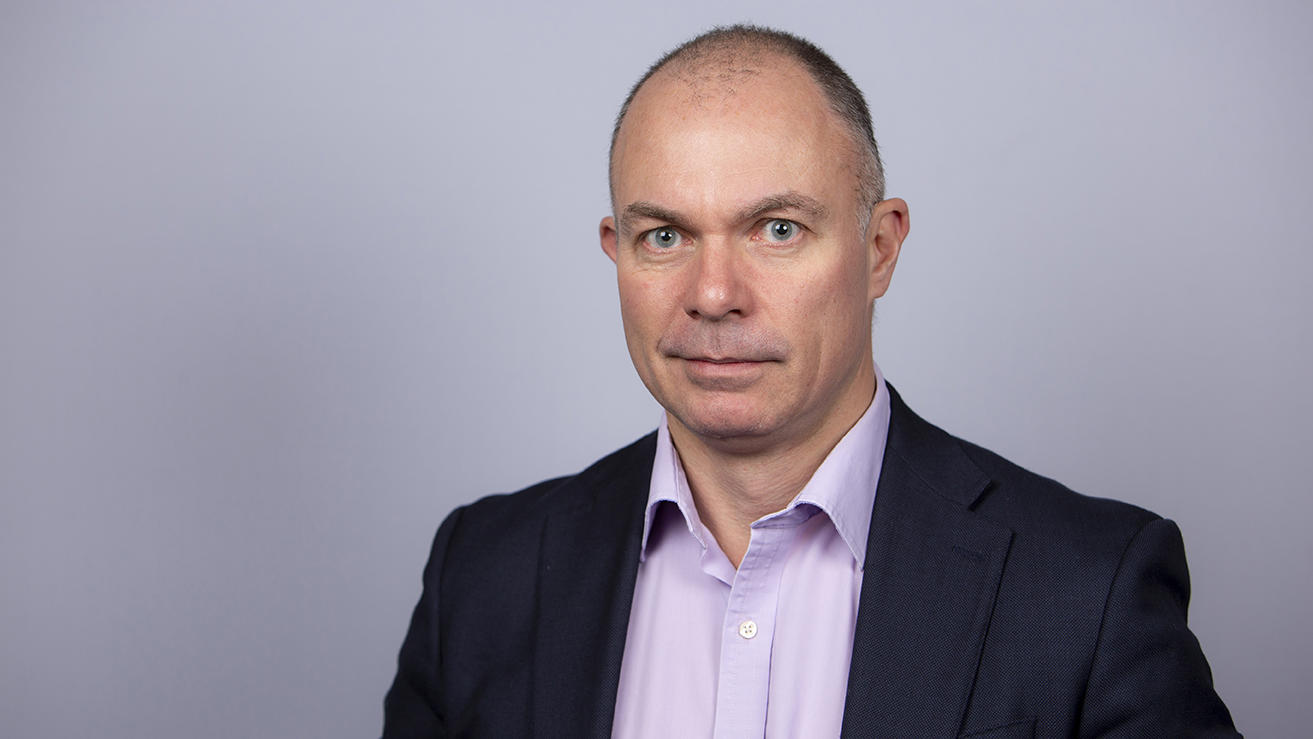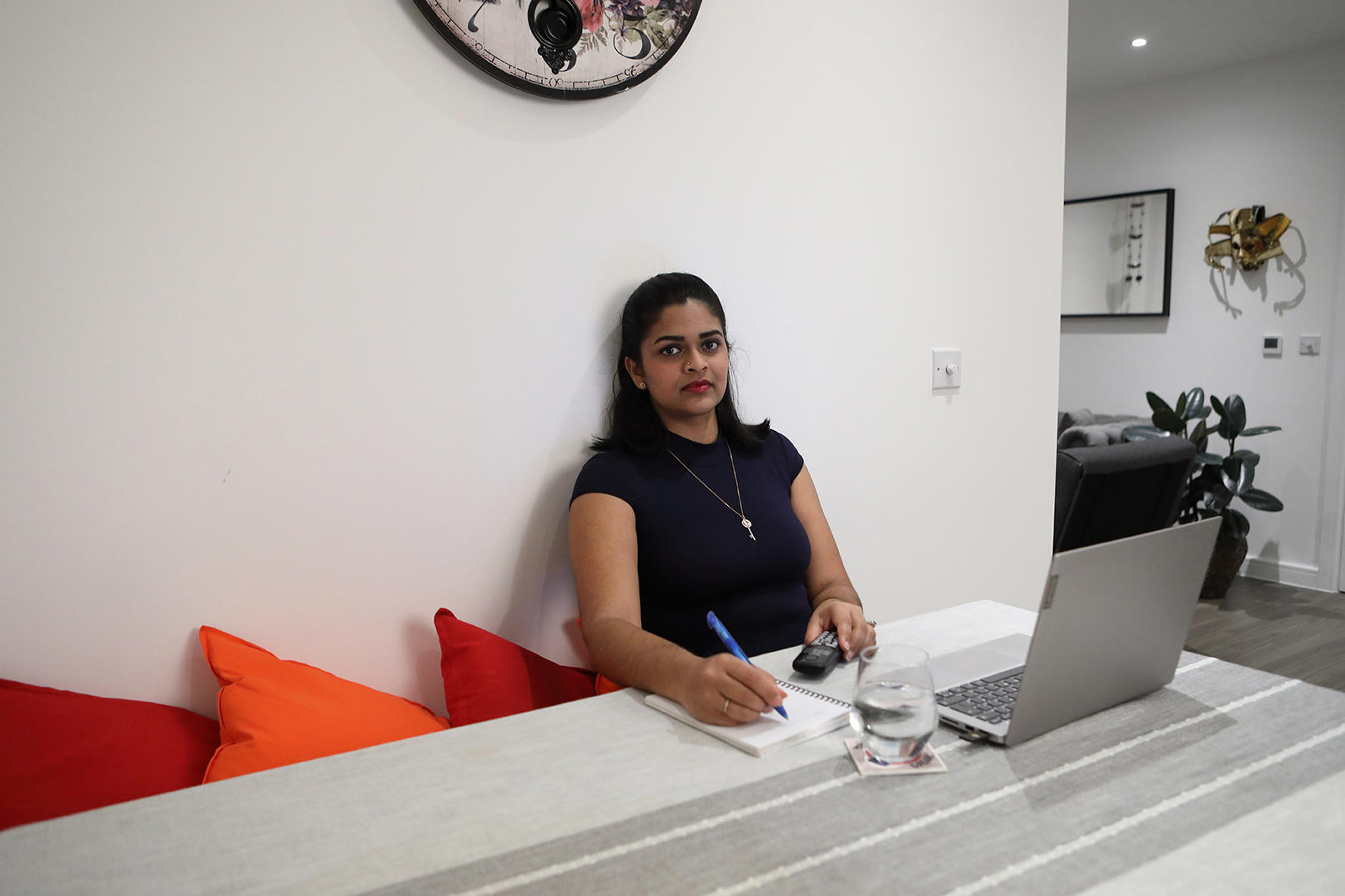The early weeks of the pandemic were busy for Nathalie MacDermott.
Specialising in paediatric infectious diseases, and with experience in medical response to disasters and epidemics, she was often called on by the media to share her expertise.
Everything seems to be going in the wrong directionNathalie MacDermott
This was on top of her day job, as a clinical academic in training at King’s College London, rotating between clinical and research posts.
Even when she contracted COVID-19 herself, probably from a colleague while on a clinical placement around the end of March, she bounced back relatively quickly, and returned to work after around 10 days, feeling ‘fully recovered’ by day 21.
But then in May she became ill again – and this time the symptoms did not go away. Worse than that, her condition progressively deteriorated, significantly affecting her mobility (she now has to use walking sticks) and almost every aspect of her life.
While she has been able to return to academic work, she has no idea how she will manage when she next has a clinical placement, or how she will finish her training.
Workforce lost
Dr MacDermott is one of the growing number of healthcare staff living with a form of what has come to be known as long COVID.
Doctors – probably exposed to the virus while at work – have found they are unable to return to their previous roles sometimes for months after initially becoming ill.
It’s a horrific situation for individuals, but it’s also a major problem for the health service, which is losing a substantial section of the workforce at the busiest time of year, during a global pandemic.
Employers are also facing the challenge of how to bring these doctors safely back to work, raising the question of whether a phased return and other processes are sufficiently fit for purpose.
Long COVID is an occupational diseaseDavid Strain
‘Long COVID is an occupational disease and should be seen as such,’ says David Strain, co-chair of the BMA medical academic staff committee, who is playing a leading role in the BMA’s COVID-19 work.
‘But I don’t think the NHS understands the scale of the problem yet. We’ve not fully got to grips with how many people this has affected, to what extent, and how long it will take for them to be able to return to work.
‘Are we talking a few extra months? Are we talking something that could be a lifelong commitment with people not going back to work? So, I don’t think people are fully aware, because it would be impossible to be aware because we don’t know how bad long COVID is going to be.’
Prospects unclear
 STRAIN: ‘We don’t know how bad long COVID is going to be’
STRAIN: ‘We don’t know how bad long COVID is going to be’
He is reassured, he says, that NHS Employers is supportive of helping healthcare workers with long COVID, although he cautions that at the time of writing (December) there has not yet been published policy on this.
Medics such as Dr MacDermott are facing uncertainty, not just about the trajectory of their condition, but also about their future employment. Mobility is a particular concern for her.
As well as suffering traditional COVID symptoms, including muscle pain, the second time round she developed problems with her feet, with pain and loss of sensation, and also weakness in her legs.
She has been seeing neurologists and initial MRI and other tests showed a mild neuropathy, but her symptoms have worsened.
‘I can really only walk around 200 metres now and have developed very severe pain in my back. It was affecting my bowel and bladder as well and they have diagnosed a myelopathy due to some form of pathology in my spinal cord.
‘It’s concerning because there’s not been any improvement – it seems like a downward trend. I guess you think when you have a viral illness you have a one-off “insult” and it takes a while to get better from that, but then you do make progress even though it might be very slow. At the moment, everything seems to be going in the wrong direction.’
Help at home
Dr MacDermott was unable to return to clinical work because of her mobility problems but returned to her academic job in September.
Her university has been very helpful, she says, and her NHS employer accepted that she came under ‘COVID’ sick leave, so there were no issues about docking her pay. So, where does she think things will go for her now?
‘I really don’t know,’ she says.
‘Right now I really struggle to do things even around the house – I’ve employed a cleaner – so how I return physically to clinical work in the future, I have no idea.
‘But even if I never fully regain my ability to walk, which hopefully won’t be the case, then they will have to put in modifications to make sure I can complete my training as a registrar.
‘And even if I was to work as a consultant they would need to put in modifications to facilitate that, but it’s really hard right now to know what will happen.
‘I don’t even know what’s causing this problem – is it a direct effect of the virus, is it an immune response that the virus has triggered in my body? Who knows what the long-term outlook is? Hopefully it’s good and it will get better, but I just don’t know.’
‘My main symptom was fatigue’
One doctor with long COVID, who has faced debilitating symptoms and a pay cut, is calling on employers to be more proactive
 JALUNDHWALA: 'I started struggling with shortness of breath'
JALUNDHWALA: 'I started struggling with shortness of breath'
Kaveri Jalundhwala is losing income and faces an extension of her GP training after contracting COVID-19 at work while on a hospital placement.
The uncertainty, on top of debilitating ongoing symptoms, has been very difficult.
‘I became ill on 30 March and had all the usual symptoms, and after a week I felt better and went back to work. I was sent to a COVID ward and worked there for three days while I was still coughing, but I didn’t have fever.
'Then I got another fever, so I isolated again and then I started really struggling with shortness of breath and that’s been my primary symptom for three months. After that my main symptom was fatigue, which I’m still struggling with now.’
Pay cut
Dr Jalundhwala, 28, is doing an extended phased return on a GP placement in the Thames Valley.
She had three months sick pay, followed by two months working 60 per cent, and is now working 80 per cent, all remote.
‘I got the full pay while I was on sick leave but then they put me on less than full time pay, so I was paid 60 per cent for two months and now I’m paid 80 per cent.
'Someone on the Facebook group highlighted to me that I shouldn’t have had my pay cut at all, so I’m following that up with my employers,’ she says.
Losing 40 per cent of income is always hard – especially when you still have around £26,000 in student loans still to pay off.
‘I’m lucky, I’ve got savings and my husband has a good job so we’re managing OK at the moment. But I’ve heard of people who have lost their jobs, which is just terrible.’
There are days when I just can’t do it, no matter how hard I push myselfKaveri Jalundhwala
She is also concerned about what will happen when she rotates to her next hospital placement, which is due to be emergency medicine – something she won’t be able to do from home.
‘Hopefully I’ll be better, but there are still days when I just can’t do it, no matter how much I push myself. I think I’ll be working eight-hour shifts but I’m struggling to get in contact with anybody to find out if there’s any flexibility in this. I’ll be going to 60 per cent, so that will be a big cut in pay again.
‘It will also mean more months of working as a trainee, which is fine for me, because that’s just how it is, but it wouldn’t be fine for everybody.’
Out of focus
She is finding it difficult to deal with the situation, particularly as she has problems concentrating because of her long COVID.
‘I think it would help if employers were more proactive and when people are sick for a long time, I think they should be reaching out to find out what is happening. It’s also difficult to find out information, for example what is the situation with sick pay. Some days I’ve felt I don’t have the energy to do this as well as my work, so obviously I prioritise my work. It’s very difficult all round.'

